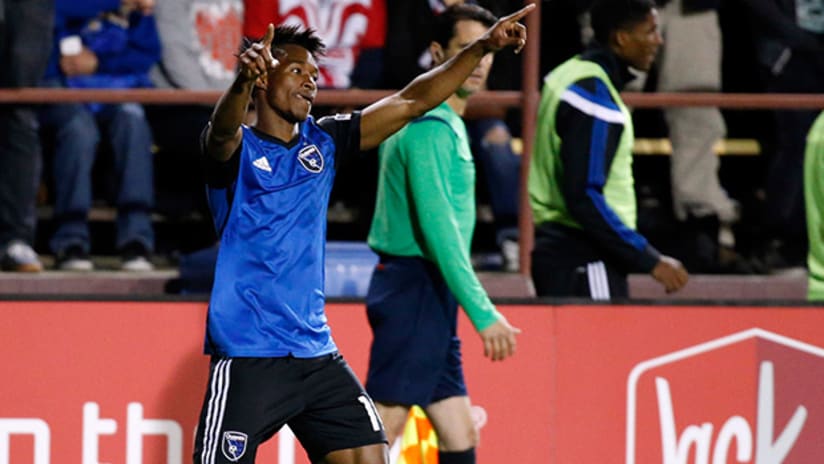Jose Luis da Silva couldn’t believe what he was seeing scrolling across the television screen.
The retired Portuguese-language teacher in the San Jose Unified School District was visiting Portugal in March when the announcement came: "Djalo has signed with the Earthquakes."
“Wow. That was exciting to hear,” da Silva recalled this week, a few days after Yannick Djalo, on loan from world power SL Benfica, scored in the Earthquakes’ first victory of the season, 1-0 over Chivas USA.
The Portuguese community has practically been doing back-flips ever since the speedy Djalo was brought to San Jose. His big finish only heightened their belief in his star potential.
A lifelong Benfica fan, da Silva is on the board of directors for the Portuguese Heritage Publications of America. He remembers when Benfica legend Tony Simoes was an Earthquakes midfielder in 1976 and ’77. Simoes helped Portugal to a third-place finish in the 1966 World Cup in England.
Thus, Da Silva has been waiting nearly 40 years for another Benfica player to hit town.
“It’s wonderful to have him here with the Earthquakes,” da Silva said of Djalo. “The Portuguese community really follows what happens with soccer players, particularly ones from Benfica. … He’s a player I’ve followed for awhile.”
Djalo created a flurry of offense against Chivas USA after coming on as a substitute. It was just what the team needed.
“Right from the start of the second half, Yannick gave us that spark,” Quakes coach Mark Watson said. “Whether it was running at defenders or supporting the play with his runs, he’s a dangerous player. The thing with him is he has a great technical base and can get out of pressure with his feet, but he’s most dangerous when he can get his legs out and run. He made a great run to the back post and polished off a solid ball from Shea (Salinas) to give us the win.”
Of his first goal in four appearances, Djalo, born in the Republic of Guinea-Bissau in West Africa, dished off praise to Salinas.
“It was a great build up to the goal,” he said. “Salinas got his space and crossed it in from the left side. My defender shifted toward the center, which gave me time. I didn’t hit it perfectly, but it was enough to beat the keeper. I couldn’t have dreamt of a better scenario to score my first goal with the club.”
Djalo, who did not make an appearance with Benfica’s first team in 2013-14, played on loan with Toulouse in the French Ligue 1 in 2012-13. Previously, he played extensively with Benfica’s arch-rival Sporting Lisbon, making numerous appearances in league play, UEFA Champions League and Europa League.
He also played with the Portugal senior team in 2010 after competing numerous times with youth national teams.
Consider Djalo to be a very good get for the Quakes.
After signing with San Jose, Djalo seemed charmed by the team’s welcoming nature. But it took him a little time to adjust to the time change and the fact that they eat dinner around 6 or 7 p.m. in the South Bay, not late at night as they do in Portugal.
Djalo also embraced the Earthquakes’ fight-to-the-finish resilience.
“They have a great mentality,” he said at the time. “That’s the key thing, mentality: Never throw in the towel early. Never give up until the end. You keep on pushing forward. They have a great spirit here, and that’s easy to adapt to.”
The question about Djalo among Benfica supporters was always: Where would he end up? They know he had the tools for stardom.
“Benfica does that a lot,” da Silva said of loaning out players. “They get top players, young players, and because they are so loaded with talent and more experienced players, they’ll put them on loan in different places in the world, mostly in Europe. It’s very rare in America. In fact, I can’t think of any that was put on loan in America.
"But to have one that comes here is special, particularly in San Jose.”
- Richter Media


